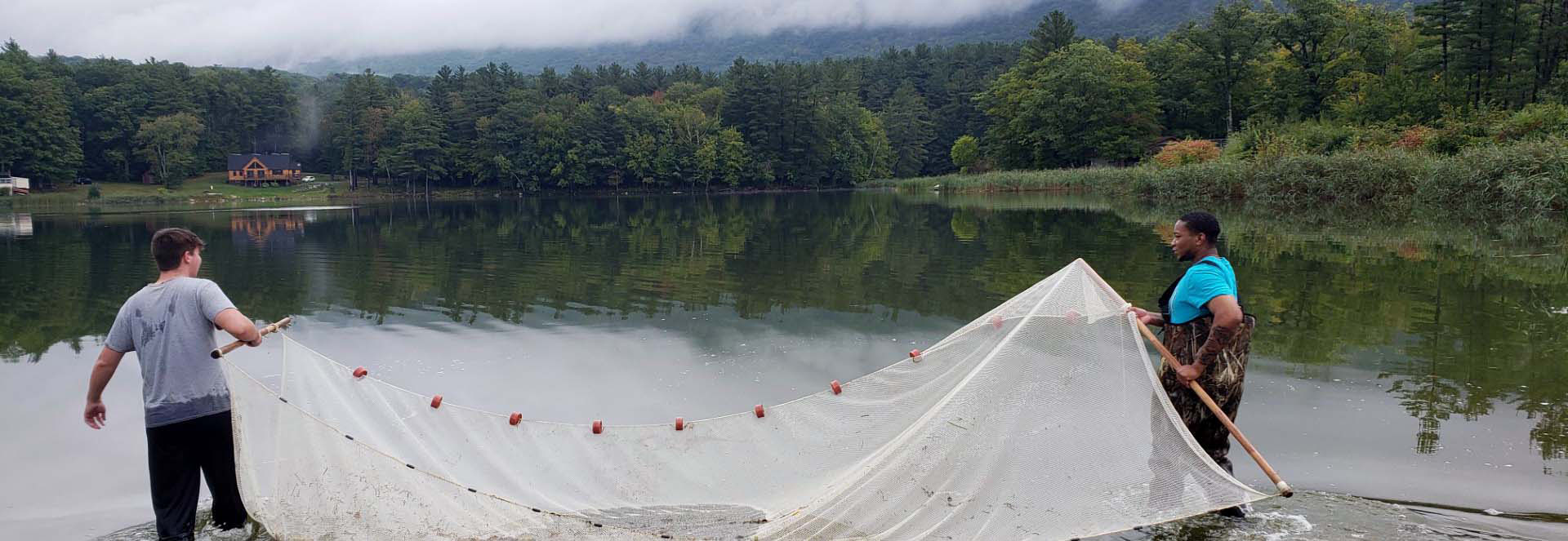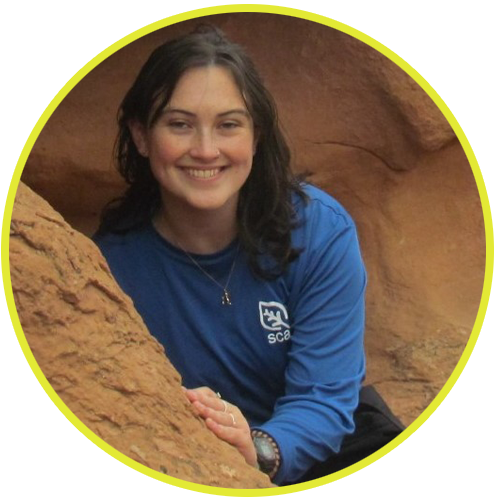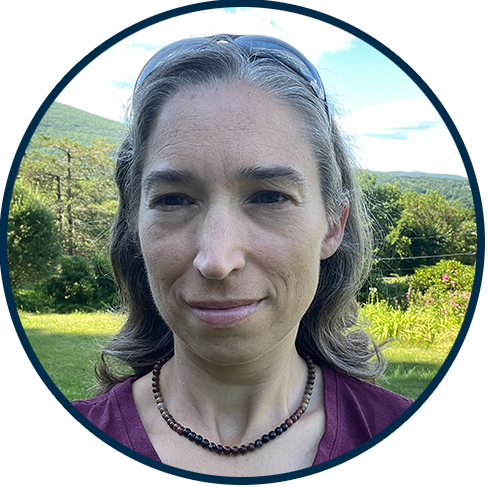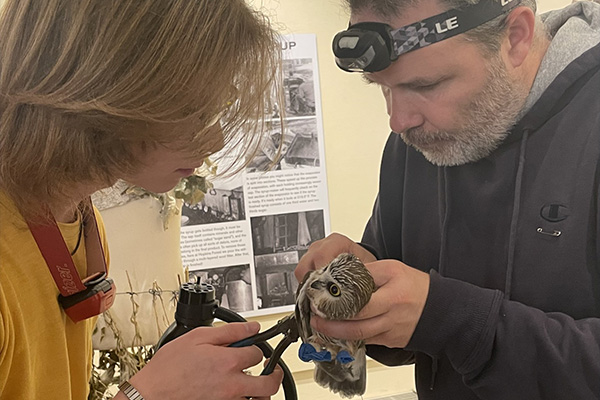
Environmental Studies
We are at a critical moment in human history—facing the challenge of sustaining the biosphere while supporting the well-being of a growing human population. At MCLA, we prepare students to tackle these issues with a rigorous, hands-on education in the interdisciplinary field of environmental studies.
Why MCLA is Different
MCLA's Environmental Studies faculty bring both expertise and passion to the classroom. Professors work closely with students, mentoring them on research and community-based projects and helping them grow as scientists and problem-solvers.
Set in the heart of the Berkshires, MCLA offers environmental studies students unmatched access to forests, rivers, and mountain ecosystems right outside the classroom. Our small classes and hands-on learning activities regularly take advantage of this incredible "outdoor classroom."
Earning an environmental studies degree at MCLA is an experience that extends far beyond the classroom. Students learn in the field, collaborate on research with faculty, and engage with organizations in the region to tackle real environmental challenges.
PLAN YOUR VISIT STart Your Application
Environmental Studies Degrees
The Environmental Studies Department at MCLA offers an Environmental Studies B.S. with a concentration in Environmental Science or Environmental Sustainability. Environmental studies students may also elect to complete a Minor in Outdoor Leadership or Earth Science. Students from other majors may complement their studies by completing a minor in Environmental Science, Environmental Sustainability, Outdoor Leadership or Earth Science.
Details on course requirements for these academic programs can be found by following the links below.
Environmental Studies FAQs
Our graduates go on to become environmental analysts, conservation associates, park rangers, naturalists, consultants, educators, and leaders in public health, sustainability, and ecological research. Hands-on learning opportunities on campus and in the Berkshire region provide you with skills to protect ecosystems, shape policy, and build a more sustainable future.
MCLA’s Environmental Studies faculty bring experience and dedication to the classroom, where they foster a supportive environment for learning. From environmental systems to ornithology, wildlife biology, environmental policy, and sustainable food systems, their courses immerse students in critical issues shaping our world. Whether studying migrating birds or monitoring local water quality, students learn directly from professors who connect science, policy, and practice to foster a sustainable future.
Recent Grads

"I wouldn't trade my college experience at MCLA for anything, and am very grateful for the courses, friends, and staff that have helped me in finding my dream career."
Bristol Sternfield, '21
Questions? We're Here to Help!
 Elena Traister
Elena Traister
Professor of Environmental Studies, Chair
413-662-5303
elena.traister@mcla.edu
Looking for More Information?
Reach Out to Us
We’ll share helpful information and student stories, and we promise not to flood your inbox.




